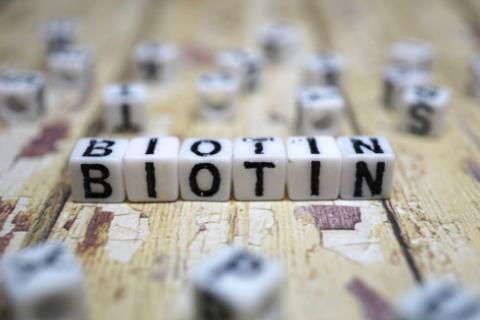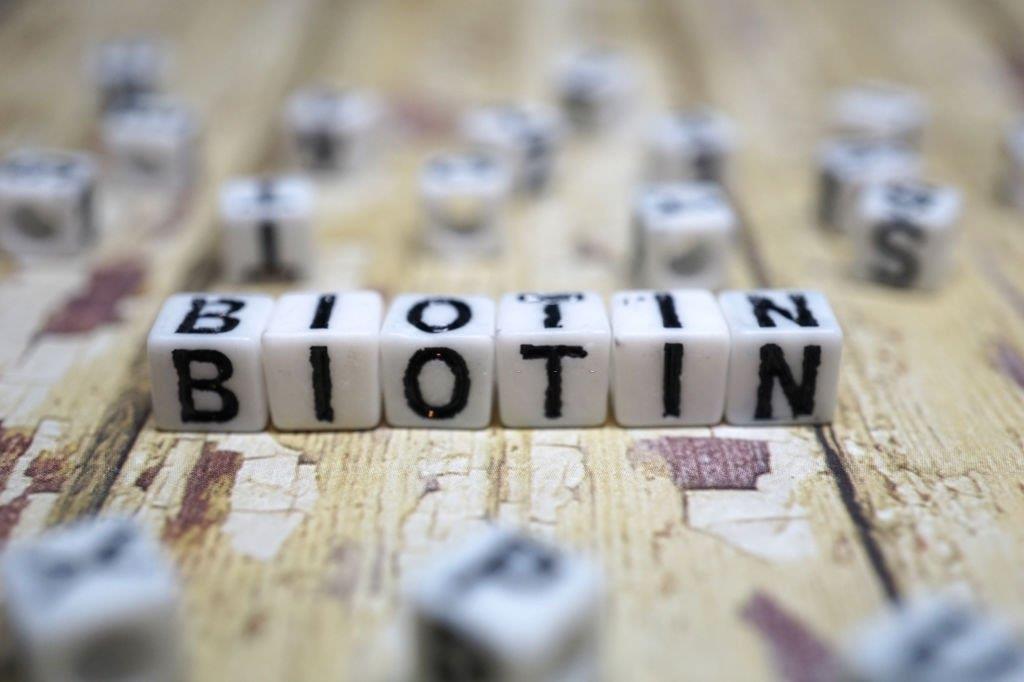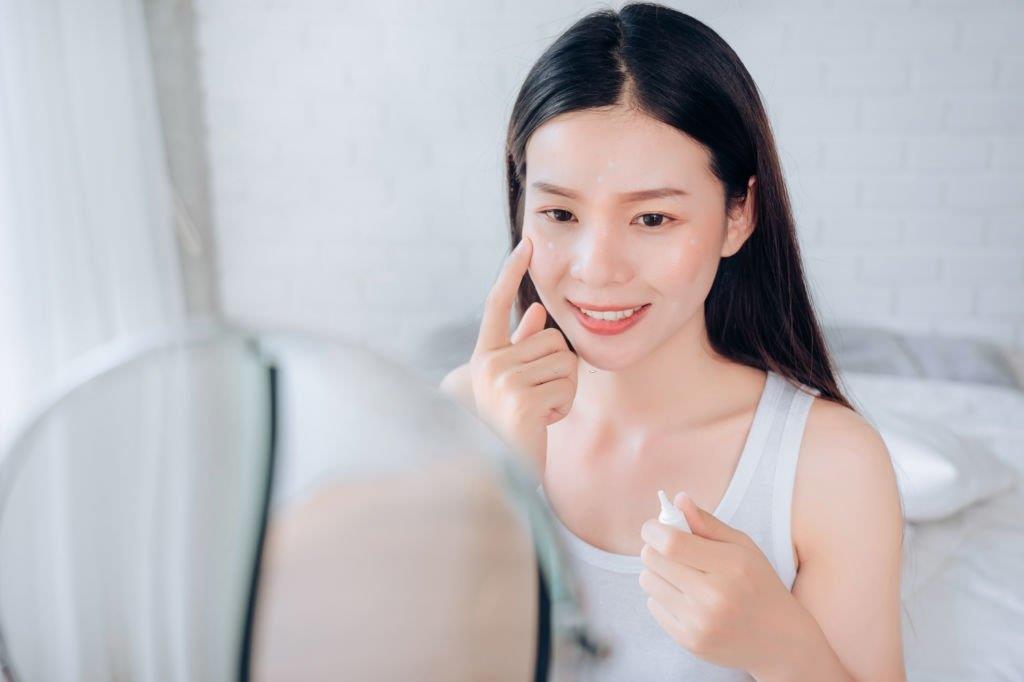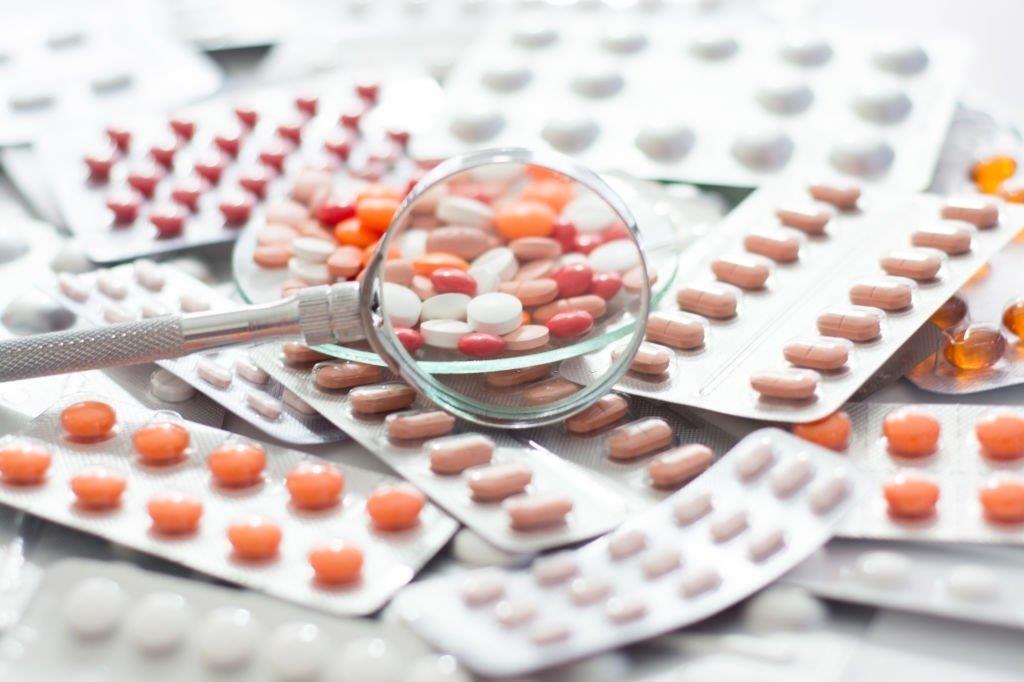Biotin (vitamin B7) acne or acne?

Biotin has long been used in beauty treatments. In particular, people often spread about biotin to treat acne. However, you've probably also heard that regularly taking biotin supplements can cause acne. So, does biotin treat acne or cause acne? Let's find out with SignsSymptomsList!
content
The importance of biotin
Biotin, also known as vitamin B7 or vitamin H. This is a B vitamin, a water-soluble group of vitamins. And because your body can't produce them, you need to get enough of them from food or supplements each day.

Biotin, aka vitamin B7 or vitamin H
Biotin is essential for health. This nutrient has long been known for its role in healthy skin, hair and nails. Not only that, biotin is an essential part of enzymes. It helps the body metabolize fats, proteins, and carbohydrates. Therefore, this vitamin also helps support digestion and provide energy. Both of these elements are necessary for human growth and development.
However, beauty care people, or beauty bloggers often have mixed opinions, around the issue of biotin for acne treatment . So taking biotin to treat acne or cause acne? Read on to learn more about this!
Biotin for acne or acne?
Biotin is often touted as a treatment for dermatitis, or a way to improve skin health. However, only a handful of studies (mainly in infants) support these benefits. Therefore, more research is needed to determine whether biotin can improve skin health in adults who are not deficient in this vitamin.
Biotin causes acne?
Currently, there is little evidence that biotin causes acne. However, the hypothesis for biotin's potential for acne is that it interferes with the absorption of pantothenic acid.
Pantothenic acid, also known as vitamin B5, plays an important role in the function of the skin's epidermal barrier. Pantothenic acid has been shown to have skin softening properties, which is why they are able to restore and aid in the treatment of acne. Our bodies use the same pathways to absorb biotin and pantothenic acid. The fact that biotin interferes with the absorption of pantothenic acid will indirectly aggravate your acne condition.
However, there are studies that show that supplementing with both biotin and pantothenic acid can help treat this condition.
Biotin for acne
Some studies have found that biotin can improve acne. This is a condition in which blackheads and whiteheads appear on the forehead and chin. Additionally, this vitamin may be helpful in controlling flaking, reducing erythema, and reducing irritation caused by acne.

Some studies show that biotin has the ability to treat acne
One study on this issue lasted 12 weeks. Study of adults with mild to moderate acne. It showed that people with acne who used both topical creams and oral supplements containing biotin and other vitamins had significant improvements.
However, there are currently no official recommendations for biotin dosage to support acne treatment. It's best to consult with your doctor so that biotin can be used safely and appropriately.
Note when using biotin to treat acne
Biotin does not usually have any serious side effects. However, when taking biotin for acne , it's important to keep the following potential effects in mind:
Biotin may affect test results
In 2017, the US Food and Drug Administration (FDA) issued a warning about biotin. It is intended for healthcare providers and consumers. This is a warning about the potential for biotin supplements to falsify some test results.
Therefore, if you are taking biotin supplements, let your healthcare provider know before performing a blood test.
Biotin can interact with certain medications
Biotin supplements affect how your liver metabolizes some medications. Furthermore, some medications can increase the breakdown of vitamins in the body or decrease biotin absorption in the gut. This also reduces biotin levels in the body.
They are typically anticonvulsant drugs used to treat epilepsy such as:
- Carbamazepine;
- Primidone;
- Phenytoin;
- Phenobarbital.

Biotin interacts with some anticonvulsants
Biotin may decrease the absorption of other nutrients
As mentioned before, your body uses the same pathways to absorb biotin and other nutrients. For example nutrients like alpha-lipoic acid and vitamin B5. Therefore, when taken together, they can reduce mutual absorption.
Likewise, avidin is a protein found in raw egg whites. It tends to bind with biotin in the small intestine, reducing the absorption of this vitamin. Therefore, eating 2 or more unripe egg whites per day can cause biotin deficiency.
In summary, newer studies have shown that biotin may help treat acne. If you decide to use biotin for acne , be sure to consult with your doctor. This will help make sure you're using them in a safe dose.